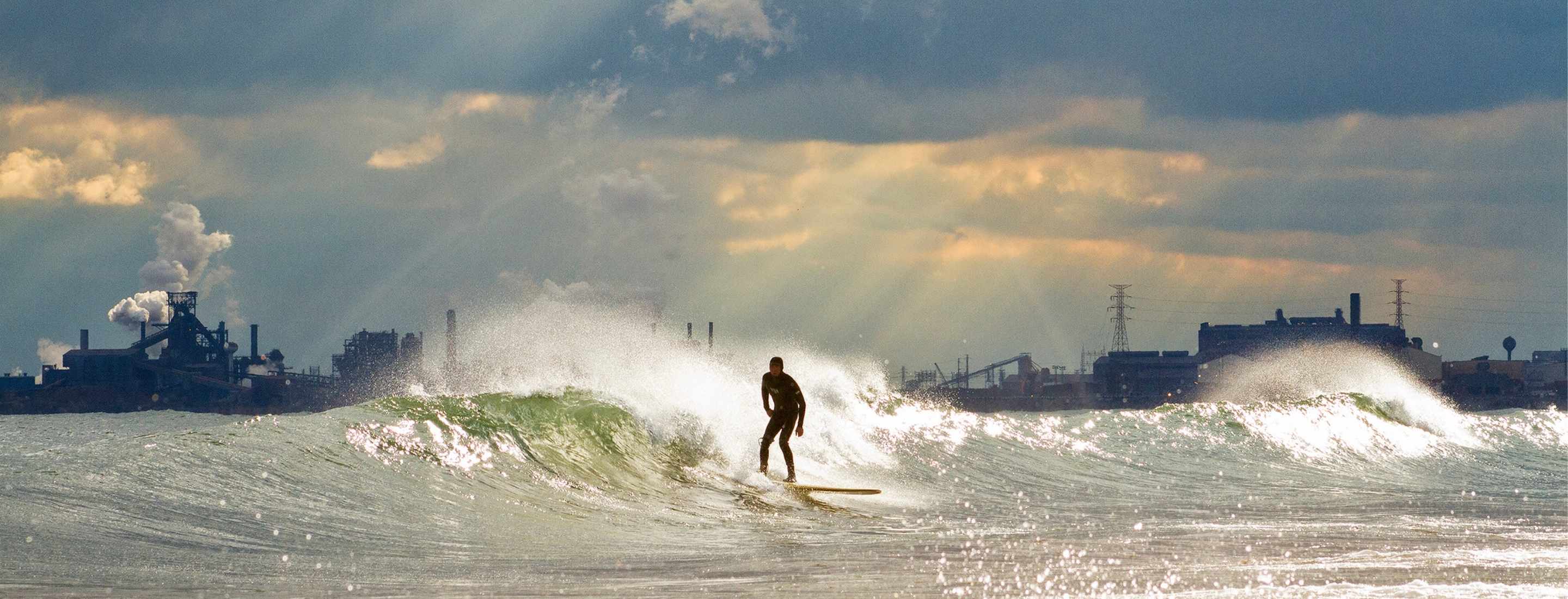A Win for Clean Water! Industrial Facilities Must Keep up With Wastewater TechnologyThe Surfrider Foundation and our partners are celebrating a ...
Published on by Water Network Research, Official research team of The Water Network

The Surfrider Foundation and our partners are celebrating a win in court that will force the U.S. Environmental Protection Agency to make better decisions when it comes to setting water pollution standards for industrial facilities.
In 2023, Surfrider and roughly a dozen partners filed a lawsuit against the EPA, challenging the agency’s failure to comply with their duty to ensure that technology-based standards for industrial polluters like petroleum refineries, plastics facilities, and pesticides plants reflect the reality of today’s available technology.
The federal Clean Water Act requires that the EPA set and regularly revise national industry-specific wastewater regulations based on demonstrated wastewater treatment technologies. These technology-based standards essentially require that industrial dischargers like petroleum refineries, pesticide manufacturers, and plastics facilities utilize the best available technology to minimize their pollution discharges. So far, the EPA has created these standards for 59 industrial categories, including petroleum refineries, plastics facilities, and pesticides plants. However, many of these are seriously out of date - EPA last revised 39 of these categories more than 30 years ago, and 17 of them have not been revised since the 1970s. Additionally, EPA failed to consider important pollution information when it declined to revise standards for “indirect dischargers” which discharge polluted wastewater into publicly owned treatment works. This all means more pollution getting into our waterways and impacting public health and recreation, despite technological improvements.
Represented by Environmental Integrity Project, Surfrider and our co-plaintiffs which include the Center for Biological Diversity, Clean Water Action, the Waterkeeper Alliance, Food & Water Watch, Environment America, Bayou City Waterkeeper, Black Warrior Riverkeeper, Healthy Gulf, San Antonio Bay Estuarine Waterkeeper, and San Francisco Bay Waterkeeper, presented arguments at the U.S. District Court of Appeals for the Ninth Circuit. Arguments included that EPA’s decision about which categories’ rules to revise relied on an analysis and factors unrelated to Clean Water Act mandates, ignored data regarding known pollutants, and ignored significant evidence demonstrating that pollution reduction technologies have significantly advanced since several of the rules categories were last revised.
While recognizing that EPA has some discretion to prioritize the revision of certain industrial categories over others by using a hazard-based approach, the Court’s June 18th decision recognizes that this discretion is not unlimited, and agreed with Surfrider that EPA’s approach fell short of the law. This is, in part, because: (1) EPA did not consider advances in pollution treatment technology, and (2) EPA impermissibly ignored evidence of pollutants when determining the purported pollution reduction benefits from revising certain categories, including pretreatment standards for indirect dischargers. Therefore, the Court sent the decision back to the EPA to reconsider whether updating the standards is appropriate, or to provide a fuller explanation showing that its decision is not arbitrary and capricious. The EPA will have to follow the court’s opinion which recognizes several problems with how EPA made its initial decision, and supports the need to update the standards.
Namely, EPA must consider developments in pollution control technology. “On a […] fundamental level, in adopting [the Clean Water Act’s] technology-based approach, Congress contemplated a system of gradually tightening technology-based limitations that would become more stringent as pollution control technologies improved.”
Second, EPA must also consider available data regarding pollutants discharged by indirect dischargers.
Finally, EPA must increase the scope of the standards to include known pollutants and waste streams, such as nutrients and stormwater runoff, that are not already covered (for example, because they’re unregulated), or justify its decision not to. “Fundamentally, the existence of unregulated pollutants would seemingly be central to any attempt to determine where a rulemaking would “produce the most significant benefits.” […] Just as some consideration of the extent to which a [rule] is out of date is necessary to determine the benefits of revision, so too some consideration of the extent to which [a rule] is underinclusive is also necessary.” EPA must give at least some consideration to this aspect of the problem to comply with the law – and specifically, for example, must consider the role that stormwater runoff plays in pollution from the plastics industry.
Attached link
https://www.surfrider.org/news/a-win-for-clean-water-industrial-facilities-must-keep-up-with-wastewater-technologyTaxonomy
- Pollutants
- Technology
- IT
- Pollution
- plastic pollution
- Plastic Pollution
- United States